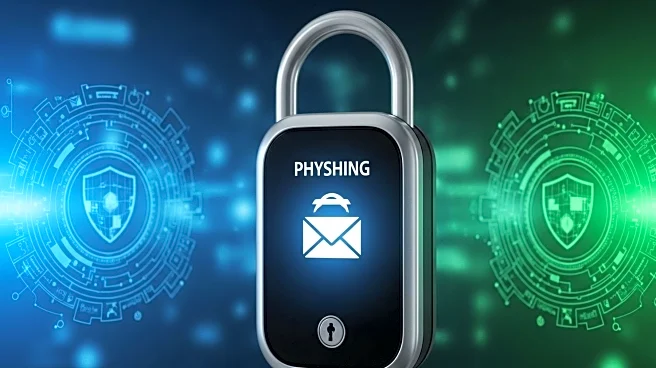What is the story about?
What's Happening?
A recent global survey conducted by Talker Research on behalf of Yubico has revealed that a significant number of adults struggle to differentiate between AI-generated phishing emails and authentic human-written messages. The survey, which included 18,000 employed adults from various countries, found that only 46% of respondents could correctly identify a phishing email as being AI-generated. Furthermore, 44% of participants admitted to interacting with phishing messages in the past year, with Gen Z being the most susceptible age group. The study highlights the prevalence of human error in recognizing cyber threats, emphasizing the need for improved cybersecurity awareness and training. Despite the risks, many individuals and companies lack robust security measures, such as multi-factor authentication, to protect against phishing attacks.
Why It's Important?
The findings of this survey underscore the growing threat of AI-driven phishing scams in the digital age. As cybercriminals increasingly leverage AI to craft convincing phishing messages, individuals and organizations face heightened risks of data breaches and financial losses. The inability to consistently identify phishing attempts highlights the urgent need for enhanced cybersecurity education and the implementation of stronger security protocols. Companies must prioritize cybersecurity training and adopt comprehensive authentication methods to safeguard sensitive information. The survey also points to the interconnectedness of personal and professional digital activities, suggesting that vulnerabilities in one area can compromise security in another.















